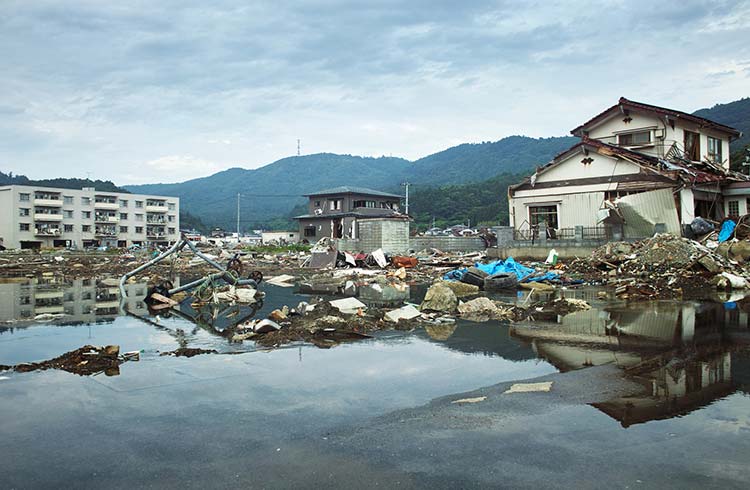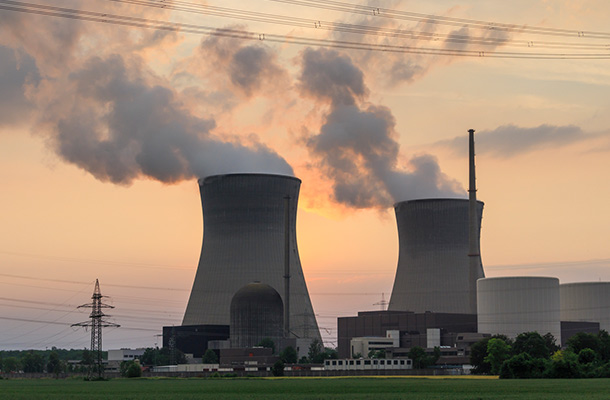A Japanese Earthquake Experience: What to Expect
We asked video producer Jesse Chard to share his experience of the 2011 earthquake in Japan. This is what you need to know.
 Photo © Getty Images/Yoshinori Kuwahara
Photo © Getty Images/Yoshinori Kuwahara
Jesse Chard, former video producer for World Nomads, was in Japan when the 9.0 earthquake struck off the northeast coast of Honshu Island on 11 March 2011.
Fortunately for Jesse, he was outside the immediate danger zone, and was in Osaka at the time when he wrote to us about his experience.
My experience of the earthquake
When the earthquake hit, my friend Dan and I were sitting in a tiny laneway restaurant nestled deep in the heart of Namba, Osaka.
The hyperactive frequency of Japan is easy to get lost in, and it's only when you settle down for a second that you are able to gain some perspective on what is going on around you. Tucking into our soup, we glanced up at the TV to see a flashing map of Japan, the entire eastern seaboard covered in red and orange.
Apocalyptic nightmare
For the next 24 hours, we would see this superimposed map, blinking like a beacon wherever we went. It sat upon scenes of unspeakable devastation which echoed in Indonesia and Haiti; huge plumes of water pouring down subways, score-tonne freight containers floating on the water like marshmallows, images of office buildings with petrified workers hanging on for dear life as their workplaces shook with tremendous force.
The broadcasts themselves were of an apocalyptic eeriness with news presenters, donned in hard hats, delivering information as it came to them, with stacks of papers piling up behind them. Journalists in the background frantically scrambled to piece together the tumult of information in front of them. In the thick of this, an aftershock rattles the studio walls, causing the news presenter to gasp in terror.
In the upper right corner of the tv screen, a counter kept ticking over, the Kanji detailing 'Dead' and 'Missing'. This tally would continue to rise unabated throughout the night, and conversations with Japanese nationals would reveal a typical, quiet concern for family and friends all over the country.
Chilling encounter
One girl I spoke to mentioned that her grandparents were in Miyagi prefecture, along with more than 800 others stranded in a gymnasium, which was in danger of catching fire. Her words were chilling as she gently resigned to the fact that she might never see them again.
The stories, concerns, and worries flowed, but Namba continued to pump along. It is a section of the city that is restless, and even in the face of abject devastation, and sustains its normal level of madness with relative ease. But while the geographical distance from the quake provided a practical solace, you could tell that the reality of the situation, and the potential danger, wasn't far from everyone's mind.
The experiences of a morning observing the breathtaking Osaka Castle, a structure with a brilliant, beautiful, yet bloody history; an afternoon spent lodged in the thick of Namba's amazing grid of brilliantly bursting electronic intensity and chaotic confusion, merged into an evening lost in that region's labyrinth of Bladerunner-esque laneways and sidebars.
The chance meeting of Dave, a brilliant singer and musician from New Orleans, who invited me and my friends to his kooky Creole apartment bar for a great Delta blues jam session, then the culmination of a twilight hour dubstep freak-out dance bust at an underground micro-bar with a group of crazy fun Japanese people.
All these experiences, amazing and beautiful, superimposed by the unrelenting, blinking map, remind me of the horrible, tragic reality that everyone in Japan faced.
What to expect after an earthquake
- Expect aftershocks: each time one is felt, drop, cover, and hold on
- Check yourself first for injuries and get first aid if necessary before helping other injured or trapped people
- Assess your home or workplace for damage. If the building appears unsafe, get everyone out. Use the stairs, not the elevator and when outside, watch out for fallen power lines or broken gas lines
- Stay out of damaged areas
- Look for and extinguish small fires if it is safe to do so. Fire is a significant hazard following earthquakes
- Listen to the radio for updated emergency information and instructions, and any information regarding possible tsunami
- Do not overload phone lines with non-emergency calls
- Help people who require special assistance: infants, elderly people, those without transportation, families who may need additional help, people with disabilities, and the people who care for them.
Who to call and what to do next
It is important to remember that the situation you are in can be extremely stressful.
Call home and your country's consulate or embassy to let them know where you are, and whether you are safe or need assistance.
Keeping an item of comfort nearby, such as a family photo, favorite music, or religious material, can often offer comfort in such situations.
If you become unwell within six weeks of returning home, with fever, rash, respiratory illness or any other unusual symptoms, seek medical attention and explain that you were recently in a disaster-affected region.
Related articles
Simple and flexible travel insurance
You can buy at home or while traveling, and claim online from anywhere in the world. With 150+ adventure activities covered and 24/7 emergency assistance.
Get a quote

No Comments